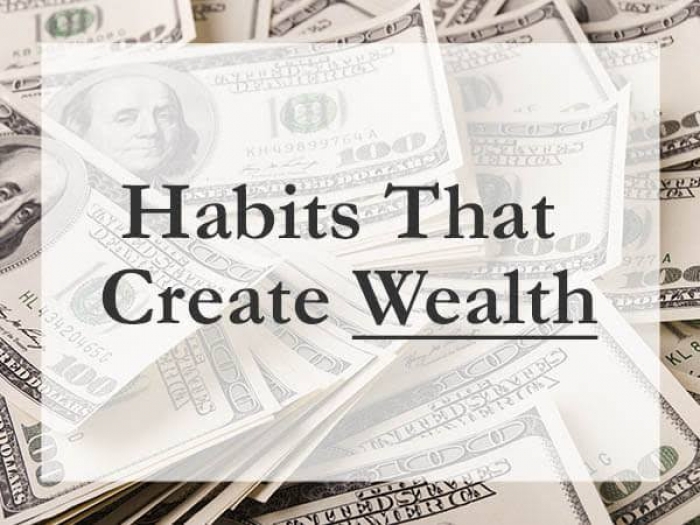For much of my twenties, while earning a modest journalist’s salary in pricey Washington, D.C., I had to get creative to make ends meet. For a time I wrote by day and waited tables by night. I lived in a series of group houses, including a basement apartment where the only bathroom was located in someone else’s bedroom. Naturally, I knew every happy hour and cheap drink deal in the city.
I was paying down my student loans and saving for retirement. Beyond that, I didn’t feel like I had much money to spare.
Unfortunately, it’s a feeling I still occasionally have, even though I’ve more than doubled my salary since my 28th birthday. When I finally got some financial breathing room, I used it to upgrade my lifestyle.
If I ever want to truly feel rich, I’m going to have to adjust my approach to money.
That’s the general premise of financial psychologist Brad Klontz’s recent book “Start Thinking Rich,” co-authored with entrepreneur Adrian Brambila. The book outlines 21 “harsh truths” that Klontz and Brambila say can help you achieve financial freedom.
For me and many others, the bottom line is that building wealth often requires making choices that can be uncomfortable. Here are four straightforward moves you could take to increase your savings in a year, for example, according to Klontz:
1. Get a roommate: Sharing housing costs can help lower your living expenses, freeing up more money to save and invest.
2. Get on the bus: Ditching your car and using public transportation can save you thousands of dollars in monthly payments, insurance and maintenance costs.
3. Get sober: Depending on your current consumption, quitting alcohol could help you save a bundle.
4. Get a side hustle: Adding an income stream can be an excellent way to boost your net worth.
Look, none of these are particularly fun – especially if, like me, you feel like you’ve graduated from the era when having roommates, working two jobs and riding the bus were necessities.
But “if you want to go from poor to rich, you have to be willing to live a minimum-wage lifestyle, at least for a while,” Klontz writes.
CNBC
